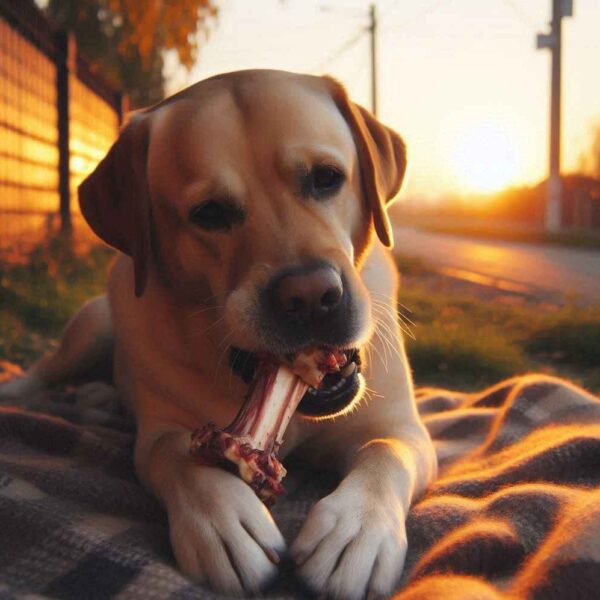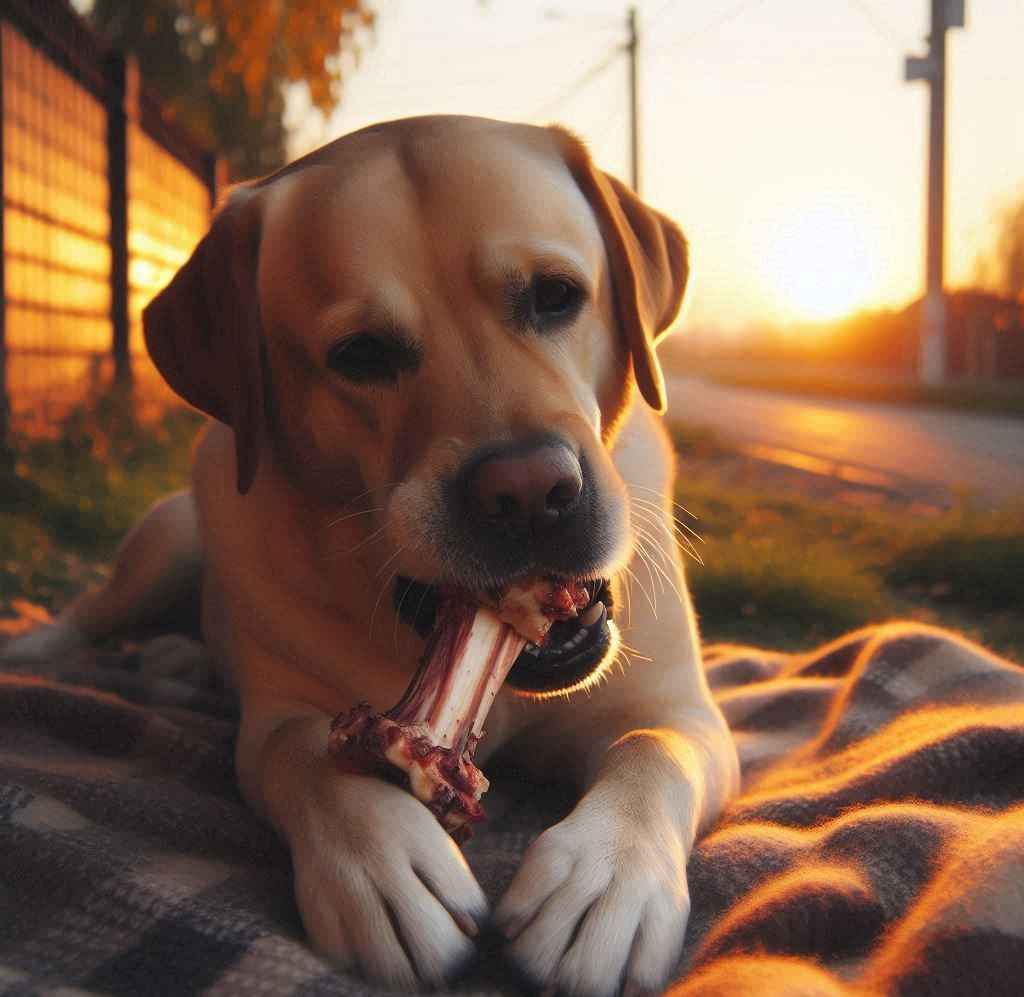Do Dogs Eat Bones Or Just Chew Them?
Answer to the question Why Do Dogs Eat Bones? Dogs may profit greatly from bones since they satisfy their hunger and provide vital minerals and nutrients. Chewing on bones can increase saliva production, which lowers the risk of gum disease and helps break down food. It can also stop plaque from forming on teeth. Dogs who chew on bones are also less prone to lick or scratch their paws excessively since the action keeps them engaged and attentive. Therefore, bones are beneficial to your dog’s general oral wellness and health in addition to being an enjoyable treat.
Although dogs and bones go together like clockwork their relationship is more chewing than eating. A large number of dogs are more interested in the process of chewing than in the actual meat or bone that some puppies may nibble on and eat. Chewing on bones is a natural method for them to keep their teeth clean and works their jaws.
It works like dental floss for dogs, helping to remove bacteria and maintaining healthy gums. In addition, chewing on a bone keeps them busy and provides excellent cerebral interest, reducing the likelihood that they will become bored or nibble on your favourite shoes. Dogs’ main objective is to chew and enjoy the delight of a nice, juicy meal, even if they sometimes nibble.
Can Dogs Eat Bones From Chicken?
There’s a reason dogs and chicken bones do not get along fried chicken bones are like crunchy traps just waiting to get into mischief. A roasted chicken bone can shatter into sharp, jagged fragments when a dog chomps on it. The pieces have the potential to choke them, rip through their digestive system, or become trapped in their neck.
Just picture attempting to chew on a bone that becomes a dangerous puzzle! Choose dog friendly chews that are safe and enjoyable in place of chicken bones. Consider them the delicious foods treats of the dog world they are safe, delicious, and guaranteed to keep dogs’ tails wagging without having to worry about unplanned trips to the clinic. Thus, give your dog access to those chicken bones but keep them out of reach.
Chicken bones are not good for dogs, therefore they should stay away from them. Particularly after cooking, chicken bones are tender and can break easily. These bones can shatter into jagged, perhaps dangerous breaks if your dog chews on them. These splinters have the potential to choke your dog, pierce their digestive tract, or get lodged in their neck. It’s advised to avoid offering your pet chicken bones since the danger of harm to them much exceeds any advantages. To provide a safer option, think about getting your dog some specifically created toys or chews that are both durable and kind to their teeth. You can also know about Can Dogs Eat Bones?
Is It Safe For Dogs To Eat Bones?
Dogs and bones may seem like a great combination, but safety is a major worry. Dogs like chewing on bones, but not all bones are made equally. Specifically, cooked bones may be a surefire way to go wrong. They tend to break into dangerously sharp fragments that might injure your dog’s mouth, throat, or digestive system. Consider rewarding your dog with a crunchy treat that could turn out to be a hazardous puzzle! However, if provided cautiously, raw bones might be a safer option, providing natural minerals and supporting tooth health. Just make sure they’re big enough to keep your dog from choking, and keep an eye on them at all times while they’re chewing.
The digestive tract of your dog is seriously endangered by bones. Bone pieces have the potential to get stuck in the colon or small intestine if they manage to pass through the digestive system. Your dog may have severe and painful diarrhoea as a result of this barrier. The rectum and colon linings may get inflamed and scraped by the rough edges of the bone pieces, leading to more damage. Inflammation and potentially dangerous health problems may result from this discomfort. Therefore, even while bones could appear like a delightful treat, improper breakdown might result in serious issues. To keep your dog happy and healthy, it is more effective to select safer treats or chew toys.
Can A Dog Digest A Bone?
Dogs and bones go together like clockwork, digestion may be a bit of a rollercoaster. While dogs can usually digest bones in 8 to 12 hours, things are not always that simple. The size, kind and cooking status of the bone can affect how successfully it is digested. Cooked bones can become difficult puzzles, while raw bones often break down more naturally and are easy on the stomach.
They might break into sharp pieces that cut the throat or injure the digestive system. It is like feeding your dog food that has unknown dangers. Therefore, even if many dogs can manage bones without any issues there’s always a chance that anything can go wrong. Think of safer chew toys or snacks that want not cause you to worry in order to maintain things calm and safe.
Bones are usually broken down by dogs in 8 to 12 hours. However, depending on the size and level of cooking of the bone, this duration may change. For example, cooked bones may offer additional dangers and take longer to break down. Fell or large bones might lead to major intestinal injury or even choking hazards. Cooked bone splinters have the potential to rip or scrape the gastrointestinal tract, resulting in painful conditions. Therefore certain bones may easily pass through your dog’s system, others may cause problems. It’s advisable to keep an eye on your dog and select safer activities to steer clear of these possible risks.
Facts & Features Of Dogs:
- There are hundreds of different breeds of dogs and each has special qualities.
- They are renowned for being devoted and loving often forming close relationships with their owners.
- Dogs are great in tracking and detecting because of their keen senses of scent, hearing and sight.
- They come in a variety of colour and patterns and have a variety of coat kinds. Dogs are social creatures who grow when they engage with people and other animals.
- They are quite trainable, picking up chores, orders and tricks.
- Exercise on a regular basis is crucial to their health.
- Dogs use facial expressions, body language and vocalisations to describe their wants and feelings.
- Some health advantages of dog ownership include less stress levels and higher levels of exercise.
- Dogs usually live 10 to 15 years while smaller breeds can have longer lifespans.




